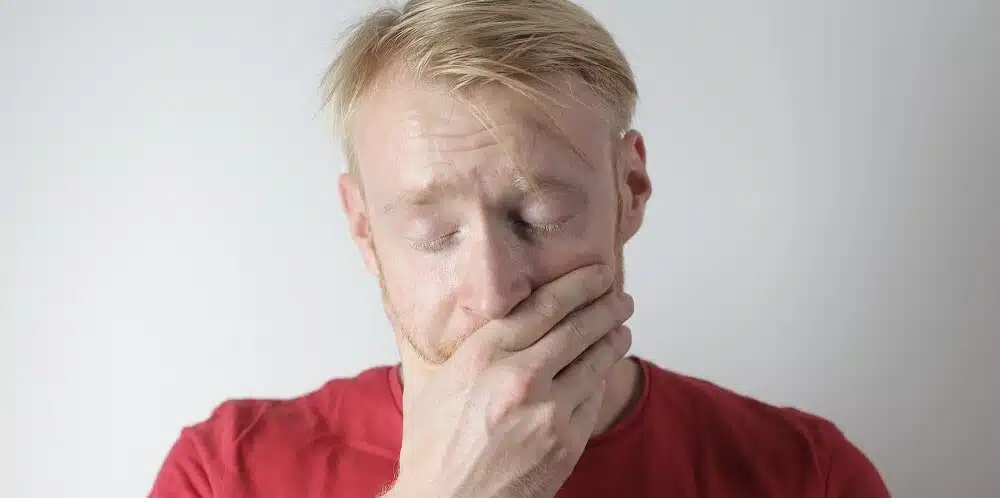Are you wondering what TMJ is? And what are the causes, symptoms, and solutions to TMJ disorders? We’ll discuss everything you need to know, below.
Trident General Dentistry offers superior dental care in Charleston, SC. Book an appointment with us today!
TMJ Defined
A proper functioning temporomandibular joint (TMJ) serves many vital functions in the human body. This complex ball and socket joint unites your lower jaw (mandible) with the skull’s temple (temporal) bones. A soft disc of tissue lies between the ball and socket to prevent them from touching. Muscles, ligaments, blood vessels, nerves, fluid, and connective tissue stabilize the joint, keep it healthy, and allow the complex movements needed for the following functions:
· Chewing
· Swallowing
· Speaking clearly
· Breathing
· Opening your mouth
· Sucking
· Facial expression
What Is a TMJ Disorder?
TMJ disorders occur when the joint doesn’t function properly and pain results. More than 10 million Americans experience a TMJ disorder in their lifetime, and it affects women more than men.
TMJ disorders can include:
· Pain in the muscles that move your jaw.
· Injury to the joint’s disc or bony components.
· Arthritis or degenerative inflammation of the joint.
Some people experience more than one of these conditions at the same time. Many times, TMJ disorders coincide with other health issues such as chronic fatigue syndrome or fibromyalgia. For most people, TMJ pain resolves within weeks or months. However, TMJ can become a debilitating and long-term condition that significantly affects a person’s quality of life.
Causes Of TMJ
TMJ disorder is a complex condition for which scientists don’t know the direct cause. However, there are several potential causes, such as:
· Trauma. TMJ pain often occurs after car accidents in which the joint receives a direct blow. Whiplash seems to often lead to TMJ due to the pressure placed on the joint’s muscles.
· Bruxism. Clenching and grinding your teeth harms your teeth and the cartilage lining of the TMJ. Bruxing causes changes in how your teeth fit together. This leads to strain on the muscles and movement of the joint out of its socket.
· Stress. Physical, mental, and emotional stress can cause TMJ symptoms or make them worse. Tightening of the facial muscles and clenching teeth can cause pain in the joint.
· Bad bite. A misalignment of your teeth can cause them to not fit together correctly. Some believe this to be a significant cause of TMJ pain. The issues associated with a bad bite worsen during stress or teeth grinding because the teeth close together more than usual.
· Hormones. Because women are nine times more likely to develop TMJ, researchers believe that elevated estrogen levels may contribute to its onset.
TMJ Risk Factors
Although the exact cause of TMJ disorders remains elusive, several factors might increase its likelihood.
The risk factors for developing TMJ include:
· Recent automobile accident
· Recent trauma such as a direct blow in sports
· Gender (Female)
· Bad oral habits such as nail or ink pen biting
· Arthritis (osteoarthritis and rheumatoid arthritis)
· Stressful life events
· Smoking
· High anxiety personality type
Symptoms Of TMJ
There is a wide range of types and intensity of TMJ symptoms.
The most common symptoms include:
· Pain in the temporomandibular joint, which is directly in front of the ear.
· Jaw pain
· Pain while chewing
· Neck pain
· Difficulty opening and closing your mouth
· Noises such as clicking or popping while opening
· Jaw locks open or closed
· Tired and painful facial muscles
· Sensitive teeth
· Teeth don’t seem to fit together
Solutions For TMJ
If you suspect you have TMJ disorder, you should contact Trident General Dentistry for an evaluation. An accurate diagnosis can help you resolve this painful condition more quickly. Some cases of TMJ can resolve with no treatment. However, severe cases may need surgery to alleviate the symptoms.
The treatments can include one or more of the following options:
Home Care
Follow instructions given by your health care provider. They may direct you to do the following:
· Eat a soft diet.
· Apply moist heat or ice packs to sore muscles.
· Avoid excessive mouth movements such as wide yawns, chewing gum, and singing.
· Practice relaxation methods.
Medication
Depending on the severity of your pain, one or more of the following prescription medications may help alleviate your symptoms:
· High dose anti-inflammatory drugs such as NSAIDs
· Muscle relaxers
· Anti-anxiety medication
· Anti-depressants
Mouthguards
A custom-made nightguard or stabilization splint helps prevent teeth from biting together. This is a widely used treatment for TMJ and one of the most effective conservative treatments.
Physical Therapy
Physical therapists use ultrasound, moist heat, ice packs, electrical stimulation, and jaw muscle exercises to treat TMJ symptoms.
Bite Improvement
Trident General Dentistry may recommend improving how your teeth fit together by reshaping some of your teeth.
Schedule an Appointment
We hope you now know what TMJ is and the causes, symptoms, and solutions to TMJ disorders. If you believe you have a TMJ disorder, contact Trident General Dentistry for an evaluation and treatment recommendations on how to alleviate your symptoms and return to a healthy lifestyle.

